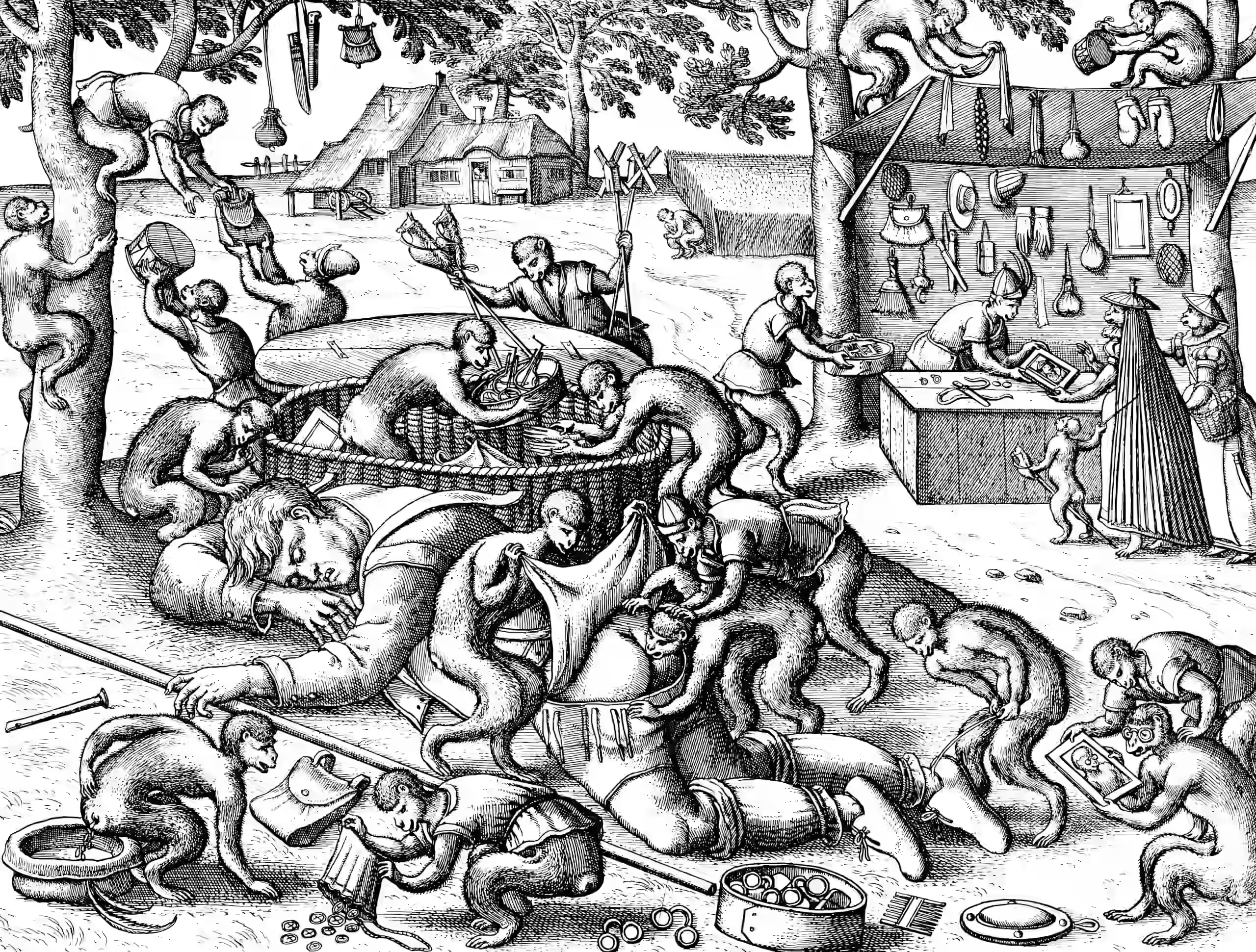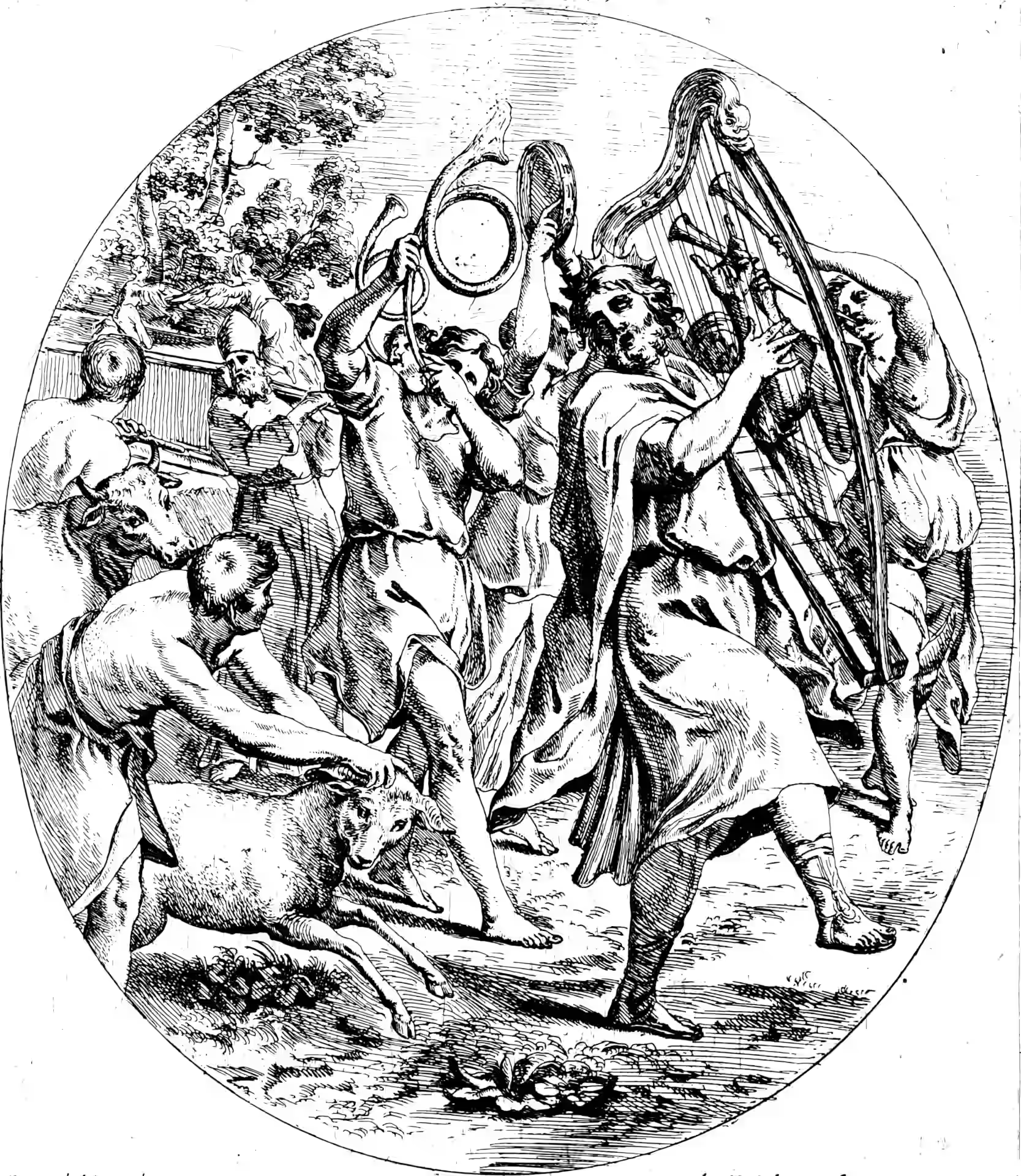Misrule, punks and ravers
Peasantpunk, expressive incompetence, contrarianism on a budget, metis farming, the feast of fools in suburbia, crusty rituals for the churchless, oxytocin fixes, mock chivalric orders, squads
March 26, 2018 — September 26, 2023
On the Feast of Fools aesthetic, some particular subcultures of DIY subversion, and apparently opposed to (or symbiotic with) the large-scale society.
Consider the Situationist International, the Temporary Autonomous Zone (Bey 2003). See also timeless works of art.
1 Prefigurative politics
A related concept but probably not quite what I am interested in here
Yates (2015):
The notion of ‘prefigurative politics’ is becoming established in this debate and refers to scenarios where protesters express the political ‘ends’ of their actions through their ‘means’, or where they create experimental or ‘alternative’ social arrangements or institutions. Both meanings share the idea that prefiguration anticipates or partially actualises goals sought by movements. This article uses narratives and observations gathered in social movement ‘free spaces’, autonomous social centres in Barcelona, to evaluate, critique and rearticulate the concept. Participants’ attention to the ‘means’ through which protest is carried out and emphasis on projects such as experimentation with alternative social and organisational forms suggest they engage in prefigurative politics.
2 Against legibility
See legibility.
3 Makers
See making.
4 Gift economy
- apenwarr, The Gift of It’s Your Problem Now
5 Historical fools’s societies and occasions
a.k.a. Mock chivalric orders or burlesque societies. I’d call them squads if I were the modern internet.
- Confrérie des Conards
- Society of the Fat Ox
- La Farce de maître Pathelin
- Enfants sans Souci
- Lord of Misrule at the Feast of Fools
Surprisingly hard to research in English by naïve googling. Terminology is confusing. Occasionally referred to as Sociétés Joyeuses.
6 Ship of fools
7 Too much misrule
Erik Hoel, The gossip trap
Martin Sustrik summarises Herrmann, Thöni and Gäin Anti-social punishment
There’s a trope among Slovak intellectual elite depicting an average Slovak as living in a village, sitting a local pub, drinking Borovička, criticizing everyone and everything but not willing to lift a finger to improve things. Moreover, it is assumed that if you actually tried to make things better, said individual would throw dirt at you and place obstacles in your way.
I always assumed that this caricature was silly. It was partly because I have a soft spot for Slovak rural life but mainly because such behavior makes absolutely no sense from game-theoretical point of view. If a do-gooder is stupid enough to try to altruistically improve your life, why go into trouble of actively opposing them? Why not just sit safely hidden in the pub, drink some more Borovička and wait until they are done?
Well, it turns out that the things are far more complex then I thought.[…] Herrmann, Thöni and Gächter found out that participants in some societies were engaging in what they’ve called “anti-social punishment”. They were punishing cooperators! […]
The authors then try to find out which aspects of the society are correlated with the high anti-social punishment rate:
With respect to antisocial punishment, we found that both norms of civic cooperation and rule of law are significantly negatively correlated with punishment (at P < 0.05). In other words, antisocial punishment is harsher in participant pools from societies with weak norms of civic cooperation and a weak rule of law. Additional analyses show that antisocial punishment also varies highly significantly with a variety of indicators developed by social scientists in order to characterize societies. Thus, the extent of antisocial punishment is most likely affected by the wider societal background.


